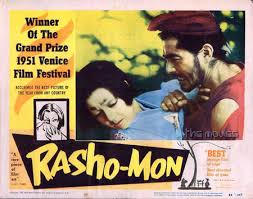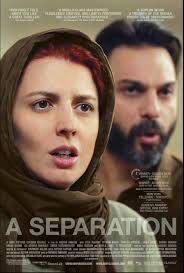"The cinema has now attained a stage where it can handle Shakespeare and psychiatry with equal facility." Satyajithray
One of the key features of cinema is that it encompasses all forms of human thoughts. Film is a meeting place of music, dance,acting, technology and human creativity. It exposes different aspects of human existence. Can cinema function as a philosophical text also? Can it analyse the nature of justice, truth? A close watching of the movie 12 Angry Men by Sidney Lumet willhelp us to understand how cinema can expose the realm of philosophical speculation.
12 Angry Men is an American drama film adapted from the teleplay of the same name by Reginald Rose. The film begins with the verdict of a murder trial and 12 men from various professions are asked to re-examine the court verdict. If they find the accused guilty, then he will be hanged.
At the beginning of the film all the jurors except an architect voted the accused as guilty. He stood for a possibility of a different course of events which other jurors refused to accept. He was asked to explain and he demanded another voting in which he was supported by a wise and observant elderly man. As the homicide trial continues, the architect manages to convince others that the court trial is not as obviously clear as they thought. With his clever inferences and meticulous observation and analysis, he defended his point of view and eventually got majority. The accused is acquitted at the end of the film.
The film exposes the nature of justice and the role of class, power and gender in forming one's sense of justice. It also points at the inability of man to come to final conclusion and brings out the attitude of jurors towards the trial and how social prejudices twists the objectivity of human understanding. It explores how ones sense of justice, truth etc... are influenced by various social forces.
 Throughout the history of cinema, film makers have presented various philosophical issues which are fundamental in our understanding of the world. Japanese film Rashomon (1950) by Akira Kurasova and the recent Oscar winning Iranian film A Separation (2011) by Asghar Farhadi are examples of film makers attempt to dramatise some of these issues. In Rashomon, Kurasova lets three characters to report one incident in three different ways. The viewer gets the view of a Samurai, his wife and that of Tajomaru, a bandit. The three narrates three stories in which the hero and villeins are alternated. A wood cutter sums up the narration by crossing the narratives of the first three. The spectators are not sure about the authenticity of any view. Kurasova ends the film with a pleasant note as the wood cutter takes care of the abandoned child. Through the film he poses the issue of the authenticity of human knowledge, truth and the essential nature of man. The film A Separation also presents the ambiguities we have in human experiences.
Throughout the history of cinema, film makers have presented various philosophical issues which are fundamental in our understanding of the world. Japanese film Rashomon (1950) by Akira Kurasova and the recent Oscar winning Iranian film A Separation (2011) by Asghar Farhadi are examples of film makers attempt to dramatise some of these issues. In Rashomon, Kurasova lets three characters to report one incident in three different ways. The viewer gets the view of a Samurai, his wife and that of Tajomaru, a bandit. The three narrates three stories in which the hero and villeins are alternated. A wood cutter sums up the narration by crossing the narratives of the first three. The spectators are not sure about the authenticity of any view. Kurasova ends the film with a pleasant note as the wood cutter takes care of the abandoned child. Through the film he poses the issue of the authenticity of human knowledge, truth and the essential nature of man. The film A Separation also presents the ambiguities we have in human experiences.

Instead of presenting everyday experiences, its pleasure and sorrows, these films have challenged the existing human centered knowledge systems and its limitation to create any abstract concept. In this sense they match some of the philosophical texts written in this regard. They pleases the audience as a piece of art but explores values of their times. As Ray observed, the art of cinema has proved to be the master art that can include all other forms.
One of the key features of cinema is that it encompasses all forms of human thoughts. Film is a meeting place of music, dance,acting, technology and human creativity. It exposes different aspects of human existence. Can cinema function as a philosophical text also? Can it analyse the nature of justice, truth? A close watching of the movie 12 Angry Men by Sidney Lumet willhelp us to understand how cinema can expose the realm of philosophical speculation.
12 Angry Men is an American drama film adapted from the teleplay of the same name by Reginald Rose. The film begins with the verdict of a murder trial and 12 men from various professions are asked to re-examine the court verdict. If they find the accused guilty, then he will be hanged.
At the beginning of the film all the jurors except an architect voted the accused as guilty. He stood for a possibility of a different course of events which other jurors refused to accept. He was asked to explain and he demanded another voting in which he was supported by a wise and observant elderly man. As the homicide trial continues, the architect manages to convince others that the court trial is not as obviously clear as they thought. With his clever inferences and meticulous observation and analysis, he defended his point of view and eventually got majority. The accused is acquitted at the end of the film.
The film exposes the nature of justice and the role of class, power and gender in forming one's sense of justice. It also points at the inability of man to come to final conclusion and brings out the attitude of jurors towards the trial and how social prejudices twists the objectivity of human understanding. It explores how ones sense of justice, truth etc... are influenced by various social forces.
Instead of presenting everyday experiences, its pleasure and sorrows, these films have challenged the existing human centered knowledge systems and its limitation to create any abstract concept. In this sense they match some of the philosophical texts written in this regard. They pleases the audience as a piece of art but explores values of their times. As Ray observed, the art of cinema has proved to be the master art that can include all other forms.


This comment has been removed by the author.
ReplyDelete. good and useful. For free and superior-quality notes on English literature visit: http://suman508.blogspot.in/
ReplyDeletetorgi.gov
ReplyDelete